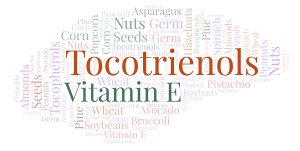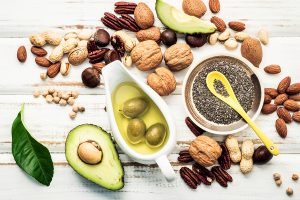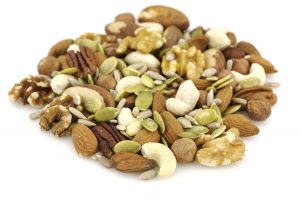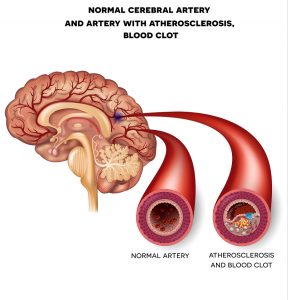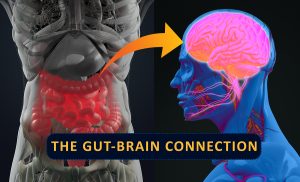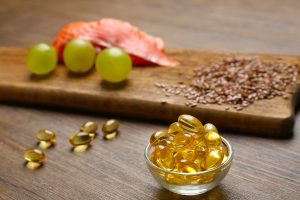Dr. Barrie Tan gave a talk about health benefits of vitamin E tocotrienols that I attended. This occurred at the 26th Anti-Aging Conference of the American Academy of Anti-Aging Medicine in Las Vegas (Dec. 13-15, 2018).
First of all, Dr. Tan stressed that there has been some confusion about vitamin E, as in the past the school of thought was that the main active ingredient of vitamin E would be alpha-tocopherol. Furthermore, many clinical trials with this ingredient go back to the 1960’s, which showed antioxidant activity. But further research revealed that there were many other tocopherols and isomers of tocotrienols. What is worse is that beneficial cardiovascular effects of the newer tocotrienols became null and void through traces of alpha-tocopherol in the mix.
Finally, this led to purer vitamin E production without alpha-tocopherol contamination. Recent clinical trials found that health benefits of vitamin E tocotrienols are linked to delta- and gamma-tocotrienols. They were many times more active in preventing heart attacks and strokes than former mixes of vitamin E.
Annatto derived tocotrienol
In 2002 scientists were able to extract pure tocotrienol without contamination of alpha-tocopherol from annatto. Prior to this vitamin E came from rice and the red palm fruit. But rice contained 50% of tocopherols, while the red palm fruit contained 25% of it.
Here are several sources of vitamin E. The components of tocopherols and tocotrienols vary depending on the source as follows.
Rice: 50% tocopherols (inactive or antagonistic), 15% alpha- and beta-tocotrienols (less active); 35% delta- and gamma-tocotrienols (most active).
Red palm fruit oil: 25% tocopherols, 25% alpha- and beta-tocotrienols, 50% delta- and gamma-tocotrienols.
Annatto: 90% delta tocotrienols and 10% gamma-tocotrienols.
Subsequent research was able to discern between the detrimental effect of alpha-tocopherol and the protecting effect of delta- and gamma-tocotrienols. Now the recommendation of Dr. Tan is to use only annatto-derived vitamin E to prevent heart attacks and strokes. He called annatto-derived vitamin E the vitamin E for the 21st century.
Tocopherol interfering with action of tocotrienols
Dr. Tan explained that alpha-tocopherol blocks absorption of tocotrienols from the gut. It also prevents storage of tocotrienols in liver and fatty tissue. By itself alpha-tocopherol leads to premature elimination of prescription drugs. It also increases blood pressure and cholesterol. What is worse is that alpha-tocopherol increases the risk of prostate cancer and glioblastoma in humans. It also decreases bone mass and increases LDL oxidation, which leads to accelerated hardening of the arteries.
Action of tocotrienols
In contrast to tocopherols, tocotrienols (particularly the delta and gamma isomers) have all the attributes that you want from vitamin E. It has the highest anti-oxidant properties among the tocotrienols. Delta- and gamma-tocotrienols accumulate in LDL cholesterol and in lipid-rich organs like the brain, heart, kidneys, lungs, spleen and skin. Abdominal adipose tissue from obesity also stores delta- and gamma-tocotrienols.
Tocotrienol’s antioxidant activity
When you use a vitamin E preparation consisting of only delta- and gamma-tocotrienols, the portion of vitamin E contained in cell membranes protects against oxidation. Vitamin E also protects lipids from omega-3 supplements and lipids in foods and beverages from oxidation. Tocotrienols are about 50-fold more potent as antioxidants compared to tocopherols. Based on this information it is not by chance that the following statistics were the results of clinical trials.
Cholesterol lowering effect of vitamin E delta- and gamma-tocotrienols
Dr. Tan cited a 6-week placebo controlled clinical study where the anti-oxidant power was measured in terms of reduction of LDL and total cholesterol.
A group of elderly patients were divided into a subgroup that had normal levels of cholesterol and another subgroup with elevated lipid levels. After 6 weeks of taking a vitamin E preparation consisting of 90% delta tocotrienols and 10% gamma-tocotrienols the blood levels dropped as follows.
Hypercholesterolemic group: LDL cholesterol Triglycerides CRP
20-28% 11-18% 31-48%
In healthy elderly patients the CRP still dropped 21-29%. Gamma-glutamyl transferase, a predictor for heart attacks dropped by 14-20%.
Another study on postmenopausal women for 12 weeks also showed beneficial effects of tocotrienols.
Hardening of arteries
Dr. Tan explained that hardening of arteries is due to a combination of factors. It is due to combined chronic inflammation and deposits of LDL cholesterol in the wall of the arteries. Studies have shown that monocyte adherence is the first step in fatty streak formation in arteries. Delta-tocotrienol is 60 times more powerful than alpha-tocopherol in inhibiting monocyte adherence. Gamma-tocotrienol is 30 times more powerful than alpha-tocopherol. This proves that taking a vitamin E preparation of 90% delta tocotrienols and 10% gamma-tocotrienols is the most advantageous vitamin E combination to take.
Health benefits of vitamin E tocotrienols include hardening of carotid artery
A 4-year study examined the effect of taking 240mg of tocotrienol-tocopherol supplementation. 88% of patients who took the vitamin E supplement showed improvement (regression of the carotid artery stenosis). Placebo patients deteriorated 60%, only 8% improved. In the 4th year of the study total cholesterol decreased by 14% and LDL cholesterol fell by 21%.
Health benefits of vitamin E tocotrienols include type 2 diabetes
Patients with type 2 diabetes received tocotrienols. Within 60 days of taking 250 mg of tocotrienols the serum total lipids were reduced by 23% and total cholesterol by 30%. The LDL cholesterol was reduced by 42%. Triglycerides were also lowered by 15-20%. C-reactive protein (CRP), a marker for inflammation was lowered between 35-60%.
Beneficial effects of tocotrienols on the eyes and skin
Tocotrienols have antioxidant effects on the eyes and skin. With regard to eye diseases glaucoma and cataracts are improving and macular degeneration in diabetics is responding as well.
The subcutaneous fatty tissue absorb tocotrienols well. Delta- and gamma-tocotrienol largely neutralize oxidative stress from UV light and ozone.
Non-alcoholic fatty liver disease (NAFLD)
This condition has a close association with obesity and the metabolic syndrome. The liver stores excessive fats. About 30-40% of US adults suffer from this disease. Researchers conducted a 12-week study with 71 NAFLD patients. It was randomized, double blind and placebo-controlled. After 12 weeks of supplementation with delta- and gamma-tocotrienol there was evidence of reduction of stress on the liver by improved liver enzymes. The ALT and AST enzymes were reduced by 15-16%. There was also an 11% reduction of triglycerides and 18% lowering of CRP, which indicates a reduction of inflammation. The fatty liver index score showed a decrease of 11%. This suggests that there was intrahepatic fat reduction. The group with delta- and gamma-tocotrienol supplements lost on average 9.7 pounds. Here is another study regarding non-alcoholic fatty liver disease and using tocotrienols.
Conclusion
Vitamin E supplementation is undergoing rejuvenation after research has established that it is delta- and gamma-tocotrienol that are the active antioxidants among the 10 or so tocopherol and tocotrienol isomers. The most active of them, delta- and gamma-tocotrienol, have excellent absorption in the gut and migrate through the blood stream to the lipid rich cells in the body. Key organs like the brain, heart, kidneys, lungs, spleen and skin accumulate vitamin E. Even the abdominal adipose tissue takes up vitamin E, which is beneficial when a person becomes obese or develops diabetes. Apart from lowering triglycerides, total and LDL cholesterol, vitamin E (delta- and gamma-tocotrienol) is also important for directly interfering with hardening of the arteries.
Vitamin E protecting skin, eyes and liver
Vitamin E also protects the skin and eyes against UV light. There can be a partial reversal of tissue damages. Finally, I pointed out that vitamin E can reverse non-alcoholic fatty liver disease (NAFLD). It is important to leave out alpha-tocopherol, which is an older form of vitamin E that is cheaper to produce, but will interfere with the function of delta- and gamma-tocotrienol as explained. As I mentioned earlier, various vitamin E supplements are on the market. It is obvious that they are not equally beneficial.
I recommend you take about 125 mg of vitamin E in the form of delta- and gamma-tocotrienol every day. I take Annatto tocotrienols (Cardiovascular Research Ltd.) 1 softgel daily.
